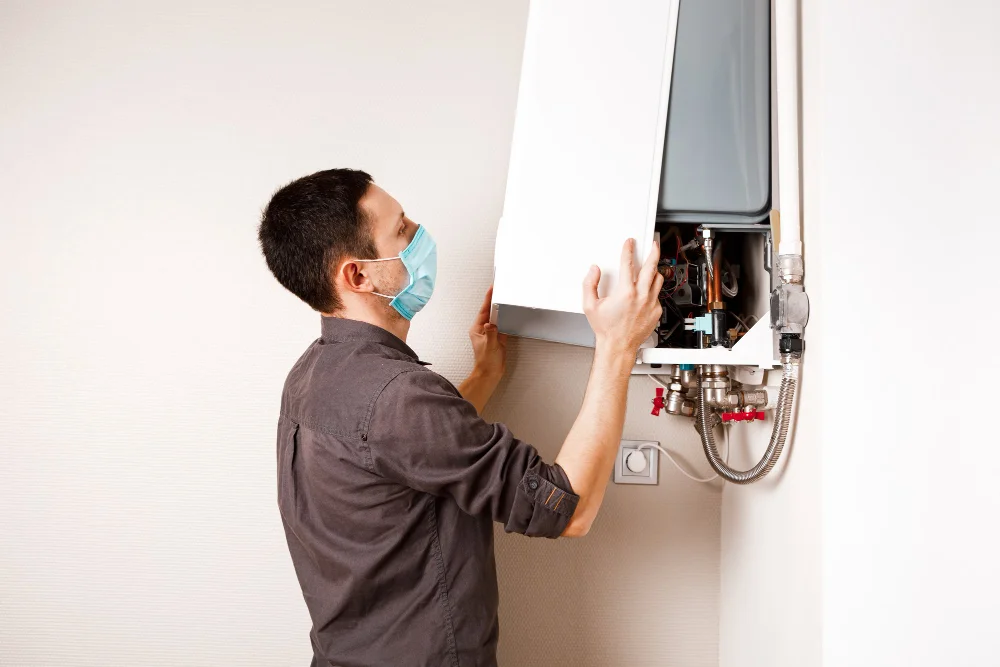The UK government is pushing for greener energy solutions. One key step is the Boiler Replacement Scheme 2025. This initiative aims to help homeowners replace old, inefficient boilers with modern, eco-friendly alternatives. This guide will explain how the scheme works, who qualifies, and how you can benefit.
What is the Boiler Replacement Scheme 2025?
The Boiler Replacement Scheme 2025 is part of the UK’s plan to reduce carbon emissions. It provides financial support to homeowners looking to replace gas and oil boilers with greener options like heat pumps. The scheme aligns with the UK’s net-zero emissions target by 2050. It also aims to lower energy bills and improve home heating efficiency.
The focus is on phasing out traditional gas boilers in favor of low-carbon heating systems. Homeowners will receive grants to cover part of the cost of installing energy-efficient heating solutions.
Why is the Scheme Important?
1. Reducing Carbon Emissions
Gas boilers contribute significantly to CO2 emissions. By switching to greener heating systems, households can lower their carbon footprint. The government wants to cut household emissions to meet climate goals.
2. Lowering Energy Bills
New heating systems like heat pumps and hydrogen-ready boilers are more efficient than traditional boilers. This means homeowners can save on energy costs over time.
3. Future-Proofing Homes
From 2025, gas boilers in new homes will be banned. The scheme encourages existing homeowners to upgrade early. This helps prepare for future regulations while improving home value.
Who is Eligible for the Boiler Replacement Scheme 2025?
The scheme is designed for homeowners in the UK. However, there are specific eligibility criteria:
- Homeowners and Landlords – You must own the property to apply.
- Old, Inefficient Boilers – The scheme targets homes with gas or oil boilers that are inefficient.
- Low-Income Households – Priority is given to homes with lower incomes or those receiving government benefits.
- Energy Performance Rating – Homes with lower EPC ratings (E, F, or G) may be prioritized.
If you meet these conditions, you could receive a grant to help cover replacement costs.
What Heating Systems are Covered?
The government aims to support low-carbon heating solutions. These include:
1. Air Source Heat Pumps
Air source heat pumps extract heat from the air and use it to warm your home. They are energy-efficient and work well in most UK homes.
2. Ground Source Heat Pumps
These pumps use heat from underground to provide warmth. They are more expensive to install but offer long-term savings.
3. Hydrogen-Ready Boilers
Hydrogen boilers function like gas boilers but run on hydrogen. They offer a cleaner alternative and can help reduce CO2 emissions.
4. Biomass Boilers
Biomass boilers use organic materials like wood pellets to generate heat. They are a renewable option and produce fewer emissions.
How Much Financial Support is Available?
The government is expected to offer grants through the Boiler Upgrade Scheme (BUS) and other energy-saving programs. Here’s a breakdown of the funding:
- Up to £7,500 for Heat Pumps – Covers part of the installation cost.
- Support for Hydrogen Boilers – Exact details are still being finalized.
- Grants for Low-Income Households – Extra financial aid may be available.
While the scheme won’t cover the full cost, it makes eco-friendly upgrades more affordable.
How to Apply for the Boiler Replacement Scheme 2025
The application process is simple:
- Check Eligibility – Ensure you meet the criteria.
- Find an Approved Installer – The government will have a list of certified installers.
- Get a Quote – The installer will assess your home and provide a cost estimate.
- Apply for the Grant – Submit your application online through the official government website.
- Installation and Payment – If approved, the grant is paid directly to the installer, reducing your upfront costs.
It’s important to apply early as funds are limited.
Benefits of Replacing Your Boiler
Switching to an energy-efficient heating system has multiple benefits:
- Lower Energy Bills – New systems use less energy, cutting down costs.
- Better Heating Efficiency – Modern systems distribute heat more evenly.
- Reduced Carbon Footprint – Helps contribute to the UK’s net-zero goals.
- Increased Home Value – Energy-efficient homes are more attractive to buyers.
Common Concerns About the Scheme
1. Is the New System Expensive to Maintain?
While installation costs can be high, maintenance is generally low. Heat pumps and hydrogen boilers are built to last, reducing long-term expenses.
2. Will My Home Need Upgrades?
Some homes may require better insulation to maximize efficiency. The government may offer additional grants for insulation improvements.
3. Can I Still Use a Gas Boiler?
Existing gas boilers are not banned. However, from 2025, new gas boiler installations in newly built homes will be restricted. Homeowners are encouraged to switch to greener alternatives.
Conclusion
The Boiler Replacement Scheme 2025 is a great opportunity for UK homeowners to upgrade their heating systems. It provides financial aid for heat pumps, hydrogen-ready boilers, and biomass systems. By switching to eco-friendly heating, you can save money, reduce emissions, and future-proof your home.
If you qualify, don’t wait. Apply for the scheme as soon as possible to secure funding. With rising energy costs, now is the perfect time to invest in a greener, more efficient heating solution.








